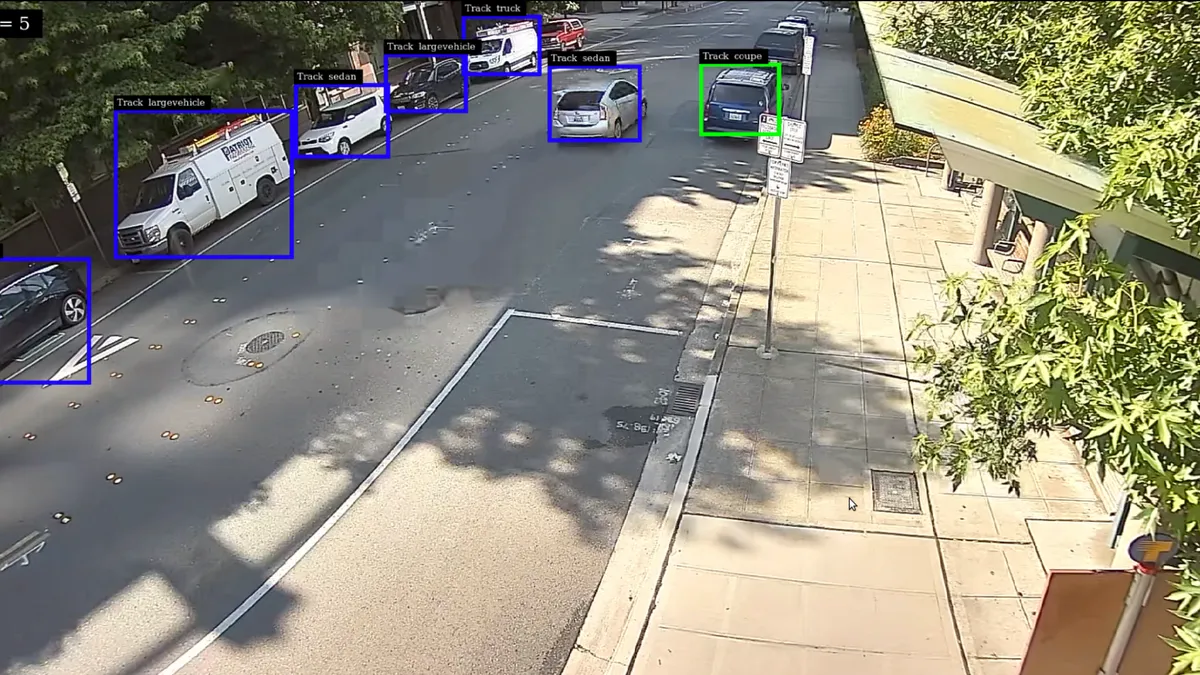Dive Brief:
- The City of Santa Monica, CA and the Los Angeles Cleantech Incubator (LACI) have rolled out their one-mile zero-emissions delivery zone, which will support LACI's Transportation Electrification Partnership goal to reduce greenhouse gas (GHG) emissions and air pollution an additional 25% by 2028.
- The delivery zone will provide priority access to zero-emissions delivery vehicles, including electric vans, e-cargo scooters and remote-controlled small delivery bots, within certain loading zones.
- Curb management company Automotus' technology will help monitor and analyze vehicle activity within the zone, collecting anonymized data to evaluate the effect on congestion, emissions, efficient deliveries, safety and more. The technology will also help provide real-time parking availability data for delivery drivers.
Dive Insight:
The pandemic has exacerbated last-mile delivery issues that have plagued cities in recent years, including air pollution and congested roadways, bike lanes and curbsides.
In fact, the recent rise in deliveries is anticipated to add 36% more delivery vehicles in inner cities by 2030, according to the World Economic Forum, which would add 11 minutes to daily commutes and increase emissions by 30% until 2030.
Cities are struggling to ensure they can tackle congestion, double parking and resulting emissions, Automotus CEO and Co-Founder Jordan Justus said.
Santa Monica aims to alleviate its own last-mile delivery challenges while also supporting its local climate and mobility goals through the new pilot that will run through December 2021, according to Santa Monica Sustainability Analyst Ariana Vito.
Additionally, the emissions-free zone will support the region's work to expedite transportation electrification ahead of the 2028 Olympic and Paralympic Games. The zone is another example of how the city, which launched the first bike-share program in Los Angeles County, embraces new technologies, according to Santa Monica Senior Transportation Planner Kyle Kozar.
The partners will test a number of innovations within the area, aimed at helping to create local green jobs and improve quality of life, including: electric micromobility solutions, medium and light-duty e-delivery vehicles for goods, and "first-in-the-nation" commercial medium-duty electric truck-sharing and charging available for small businesses.
One of the pilot's long-term goals is to show that entrenched transportation systems can be changed, according to Kozar, and to provide "breathing room" for the involved companies to try out their technologies with support from the city and community groups.
LACI received grant funding from the Governor's Office of Business and Economic Development, with some of that funding spent on staffing and $10,000 directed to the city to help with costs like signage and staff time, according to Vito. Ultimately, the city plans to create replicable operations that cities can duplicate, preventing other localities from experiencing the same learning curve or pain points, she said.
The pilot could help create a playbook for zero-emission delivery zones globally, according to Justus.












